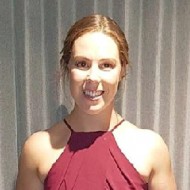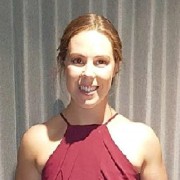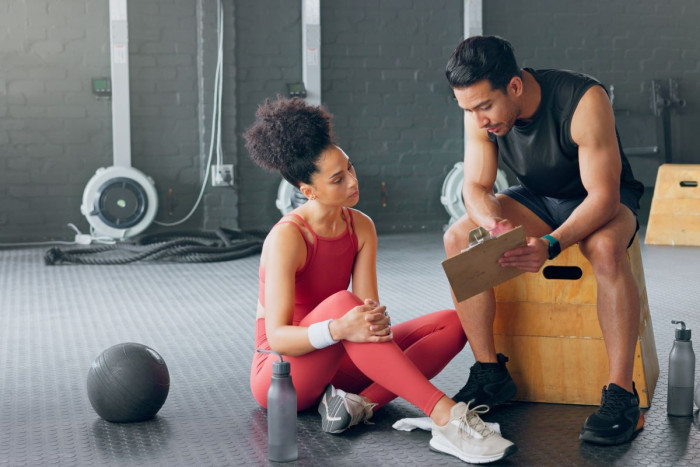Personal Trainer/Exercise Professional
Kaiwhakangungu Tinana/Mahi Ngaio
Alternative titles for this job
Personal trainers/exercise professionals provide expertise, knowledge and structured support to improve and maintain health and wellness through physical activity.
Pay
Exercise professionals usually earn
$24-$70 per hour
Personal trainers usually earn
$45-$90 per hour
Source: NZ REPs, 2022.
Job opportunities
Pay
Pay for personal trainers/exercise professionals varies depending on experience, the type of work they do, and if they are self-employed.
- Exercise professionals usually earn between minimum wage and $28 an hour.
- Group exercise professionals usually earn between $35 and $70 an hour.
- Yoga teachers usually earn between $24 and $70 an hour.
- Personal trainers usually earn between $45 and $90 an hour.
- Self-employed personal trainers can earn between $50 and $120 an hour, but their income depends on the success of their business.
Source: NZ Register of Exercise Professionals, 2022.
- PAYE.net.nz website - use this calculator to convert pay and salary information
- Employment New Zealand website - information about minimum wage rates
(This information is a guide only. Find out more about the sources of our pay information)
What you will do
Personal trainers/exercise professionals may do some or all the following:
- assess clients' health and wellness and design exercise programmes for them
- explain and demonstrate safe exercises, weight training and class routines
- give advice on nutrition as well as injury recovery and prevention
- help out at the exercise facility, which can involve cleaning and reception duties.
Personal trainers may also:
- market and promote their services
- discuss lifestyle and exercise goals with clients
- take clients for personal training sessions
- make bookings and keep accounts.
Skills and knowledge
Personal trainers/exercise professionals need to have:
- skill in exercise prescription, nutrition and wellness
- an understanding of how to prescribe and demonstrate safe and effective exercises
- an understanding of anatomy and physiology
- knowledge of first aid
- knowledge of exercise equipment and how to operate it correctly.
Personal trainers are often self-employed, so they need to have:
- sales and marketing skills
- the ability to develop and maintain their own client base
- business administration skills.
Group exercise professionals also need to have knowledge of choreography and how to lead exercise classes.
Working conditions
Personal trainers/exercise professionals:
- usually work shifts, including early mornings, evenings and weekends
- usually work in exercise facilities, recreation centres and community settings
- may need to travel to meet clients.
What's the job really like?

Libby Searle
Personal Trainer
Gyms used to scare Libby Searle. Now she works as a personal trainer and runs weightlifting classes for women.
Overcoming fear leads to new career
"I was a really unfit kid and teenager, and always hated fitness. All through high school I never did PE – just hated it," Libby says.
When a friend suggested they train for a half-marathon, Libby started going to a gym but found the experience intimidating. This all changed after she discovered she had hip dysplasia, which needed surgery and physiotherapy, and brought her back to the gym.
"I really found a love for it. I wanted to help people feel not so scared in the gym."
Running her own business
A big step for Libby was moving from working in a commercial gym to running her own personal trainer business in Christchurch.
"I always knew it would be a good idea to work in a commercial space to learn from other trainers. They offer mentoring and you can bounce ideas of them. It's a little scary going out on your own. I don't recommend it for anyone straight off."
Now Libby runs her own business specialising in weightlifting classes for women and has been a winner at the Exercise Industry Awards.
"In two years I've gone from running two classes a week to 13."
Personal trainer video
Manik Kumar talks about life as a personal trainer – 1.51 mins.
As a personal trainer,
I help people earn their fitness goals and also in their nutrition.
A typical day, I train almost from 14 to 16 clients,
starting my clients from 5:00 AM to 9:00 AM and then I take a break,
go for my workout, my training, my food,
and then I start my training back again from 3:00 PM until 8:00 PM training
clients. So we are at the personal training studio.
I've got my clients called Rathin, and we will be focusing more on core,
upper body and lower body. Let's go for a plank to start with.
I started this because it was been around 6 years,
me being very unhealthy, not fit, and then I decided to go to the gym,
push myself. But once you see change in your body, that motivates you a lot.
And then I decided to become a personal trainer and started helping people.
To become a personal trainer,
you need level 4 - that allows you to actually work in any of the
commercial gyms. In qualification, they teach you about your body,
about your muscles and the joints and the sales pitch, how to get a client.
The most difficult thing about my job is because every body is different,
it's very hard to change the habits.
It's very hard to change the technique and form into the right one.
You have to understand people, what their needs are.
The best thing about my job to see the change in their body,
every 2 weeks, we take a progress photo, we check their weight,
and when I see the change in the body, that makes me happy,
that makes me motivated more to do more in the career and make them a better
person what they were before. That's the best part of my job.
A day in the life of...
Entry requirements
There are no specific requirements to become a personal trainer/exercise professional.
However, many employers prefer to hire personal trainers/exercise professionals who have, or are working towards, a qualification. A range of personal trainer/exercise professional qualifications are available from polytechnics, universities and private training establishments.
You can also complete a personal trainer/exercise professional apprenticeship and gain a New Zealand Certificate in Exercise (Level 3 or Level 4).
Te Mahi Ako oversees personal trainer/exercise professional training and apprenticeships.
Most employers require you to be registered with the Register of Exercise Professionals (REPs).
With over 3,500 exercise professionals registered with REPs (as at August 2022), over 84% of the industry are REPs registered (4,146 fitness instructors Census data 2018).
- Te Mahi Ako website - personal trainer/exercise professional qualifications
- Register of Exercise Professionals website - personal trainer/exercise professional training providers by region
- More information about apprenticeships
Secondary education
No specific secondary education is required for this job, but biology, health education and physical education to at least NCEA Level 2 are useful.
Personal requirements
Personal trainers/exercise professionals need to be:
- patient, friendly, supportive and professional
- able to lead and motivate others
- organised and adaptable
- good at problem solving
- good communicators.
You have to be motivated to do stuff that’s not so much fun – like tax, social media, advertising. It’s hard work, but if you have the right support you can really make a go of it.

Libby Searle
Personal Trainer
Useful experience
Useful experience for personal trainers/exercise professionals includes:
- communicating in group settings
- work in areas such as nutrition, physiotherapy or physical education
- public speaking
- customer service work.
Physical requirements
Personal trainers/exercise professionals need to have good general health.
Registration
Most employers require personal trainers/exercise professionals to be registered with the Register of Exercise Professionals (REPs).
Find out more about training
- Register of Exercise Professionals (REPs)
- 0800 55 44 99 - info@reps.org.nz - www.reps.org.nz
- Te Mahi Ako
- 0508 475 455 - info@temahiako.org.nz - www.temahiako.org.nz/
What are the chances of getting a job?
Health benefits of exercise drive demand
Demand for personal trainers and exercise professionals is expected to continue to grow as exercise is increasingly viewed as essential to good health.
Online exercise training and wearable devices such as fitness watches are also expected to increase the demand for personal trainers and exercise professionals.
According to the Census, 4,146 fitness instructors worked in New Zealand in 2018.
Small range of employers for exercise professionals
Exercise professionals can work for:
- large gym chains
- exercise centres
- fitness clubs.
Self-employment common among personal trainers
Many personal trainers are self-employed.
Personal trainers can:
- work for exercise centres or gyms as an employee
- hire a space at a community hall, exercise centre or gym, and work independently
- set up a business in their own premises
- become franchise holders.
Sources
- Beddie, R, chief executive, Exercise Association of New Zealand, careers.govt.nz interview, January 2018.
- Ministry of Business, Innovation and Employment, 'Detailed Occupation Data Table', accessed February 2018, (www.mbie.govt.nz).
- NZ Herald, 'Workout Industry Bulks Up: Gym Business Worth $494 Million', February 2017, (nzherald.co.nz).
- Register of Exercise Professionals website, accessed January 2022, (www.reps.org.nz).
- Stats NZ, '2018 Census Data', 2019.
- Watkins, T, 'How Covid changed the Way We Think About Fitness', 12 September 2021, (www.stuff.co.nz).
(This information is a guide only. Find out more about the sources of our job opportunities information)
Progression and specialisations
Personal trainers/exercise professionals may progress to set up their own fitness or personal training business.
They may specialise in areas such as:
- Zumba
- Pilates
- yoga
- weightlifting.
Last updated 25 March 2025

